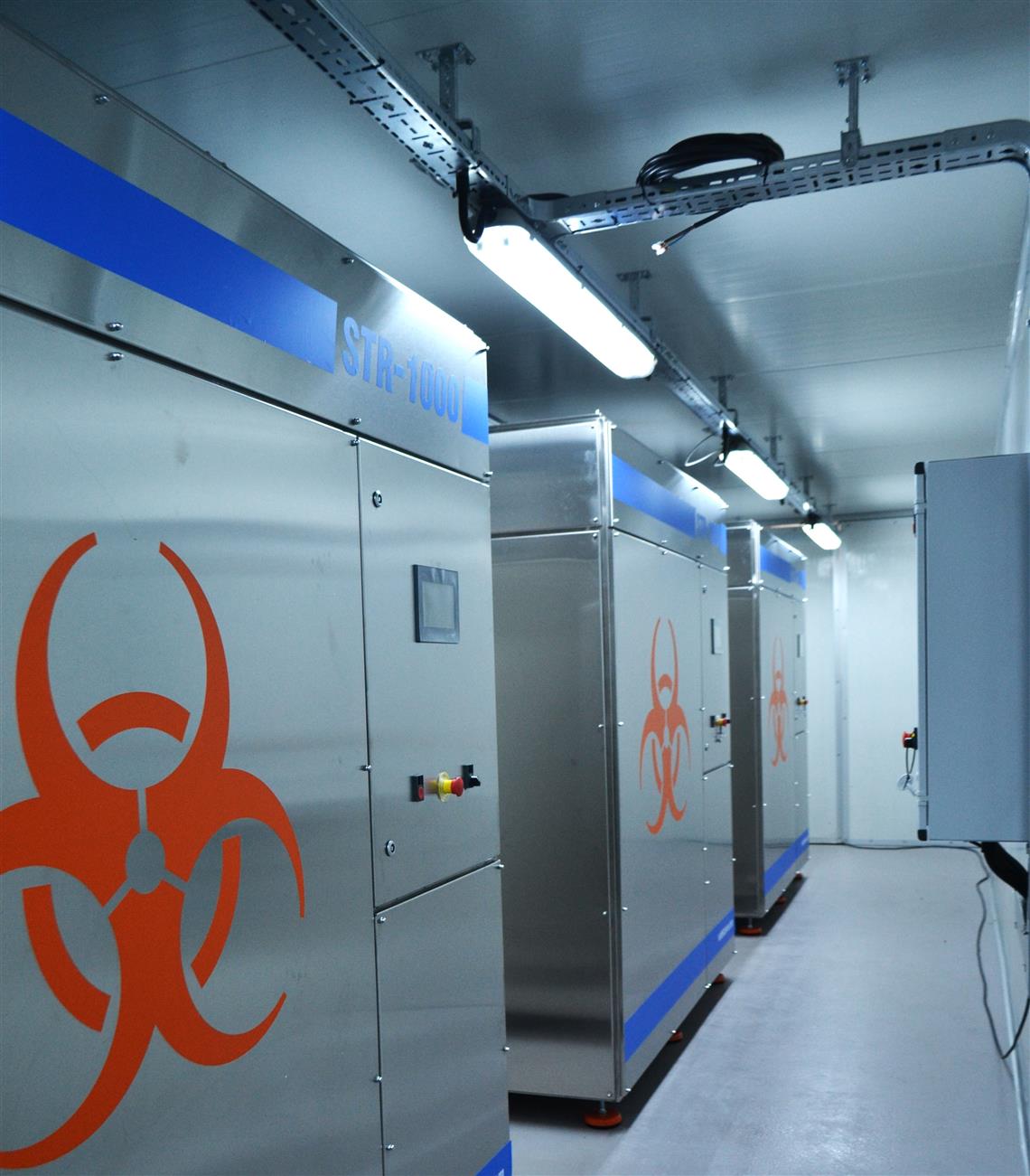Neutralization Systems
Neutralization Systems is the process of balancing the pH levels of acidic or basic chemicals. This process is used to render hazardous or harmful chemicals inert. Neutralization systems use acids, bases, and disinfectants in the correct proportions with the combination of ozonation to convert chemical waste into harmless waste.
Medical Water Treatment and Neutralization Systems are crucial in providing clean and reliable water in the healthcare sector. These systems are used in hospitals, clinics, laboratories, and other medical facilities to ensure the safety of both patients and healthcare professionals. Medical water treatment improves the quality of drinking water and enhances the hygiene of the hospital environment, including the quality of water used for medical procedures.
Treatment Stages
Medical water treatment systems consist of various stages to purify water from microorganisms and chemical contaminants:
- Pre-Filtration: An initial pre-filtration stage removes large particles and suspended matter from water, ensuring a clean flow for subsequent steps.
- Activated Carbon Filtration: Activated carbon filters eliminate organic substances, chemicals like chlorine, and compounds contributing to lousy taste/odor. This stage enhances the cleanliness and usability of water.
- Reverse Osmosis: Reverse osmosis technology applies high pressure to remove microorganisms, heavy metals, and dissolved salts from water. It is a crucial step for obtaining high-quality and pure water.
Neutralization Stages
In medical water treatment systems, neutralization is achieved by mixing acids and bases in appropriate ratios. During this stage, the pH level of water is balanced, neutralizing the harmful effects of acidic or basic chemicals.
- Mixing and Dilution: Acidic or basic water is mixed with the wastewater to achieve a neutral pH value.
Disinfection Systems
Disinfection involves the process of killing or rendering microorganisms inactive. This step is vital to prevent disease spread and ensure water hygiene. Disinfection systems use various methods, such as ultraviolet radiation, ozone, and chlorine, to neutralize microorganisms. These systems are widely used in water treatment plants, hospitals, food processing facilities, etc.
Medical water treatment and disinfection systems are critical in providing clean, reliable, high-quality water in the medical and healthcare sectors. These systems are utilized in hospitals, clinics, laboratories, and healthcare facilities to ensure patients' and healthcare professionals' safety and health. These systems are designed to improve drinking water quality and ensure the quality of water used in medical procedures.
Treatment Stage
Medical water treatment systems purify water from potentially harmful microorganisms, chemical pollutants, and particles. These stages typically include:
- Pre-Filtration: An initial pre-filtration stage removes large particles and suspended matter from water, ensuring a clean flow for subsequent steps.
- Activated Carbon Filtration: Activated carbon filters eliminate organic substances, chemicals like chlorine, and compounds contributing to lousy taste/odor. This stage enhances the cleanliness and usability of water.
- Reverse Osmosis: Reverse osmosis technology applies high pressure to remove microorganisms, heavy metals, and dissolved salts from water. It is a crucial step for obtaining high-quality and pure water.
Disinfection Stages
Medical water treatment systems not only purify water but also include disinfection stages to render harmful microorganisms inactive:
- Ultraviolet (UV) Disinfection: UV rays disrupt the DNA of microorganisms in water, rendering them inactive. This method does not require chemicals or alter water’s taste or odor.
- Ozone Disinfection: Ozone is a potent oxidizing agent that neutralizes harmful microorganisms. It also cleanses water and eliminates unpleasant odors.
Use in Disinfection and Health Sectors
Disinfection systems are employed to render microorganisms inactive or eliminate them. These systems find widespread use across various sectors, encompassing healthcare institutions, laboratories, healthcare service providers, food processing facilities, and water treatment plants. Disinfection is crucial in hospitals to prevent the spread of microbes and maintain hygiene standards.
Disinfection systems used in healthcare institutions, food processing facilities, and water treatment plants are vital in preventing disease spread and ensuring product safety. Properly implementing these systems enhances the reliability of healthcare service providers and product manufacturers.
Neutralization and disinfection systems are indispensable for controlling microorganisms and chemical waste in various industries, the medical sector, and living spaces. These systems hold critical importance for both environmental and human health. Effectively utilizing these systems in waste management, disease control, and product safety contributes to a cleaner and safer future.
At RIVAMED, we are committed to improving water quality and ensuring its safety. We develop systems involving water neutralization and disinfection processes in both industrial and medical fields, allowing water purification and safe use. Medical water treatment is crucial for patients' well-being in the healthcare sector. The highest quality and safety of water are ensured through the support of neutralization and disinfection systems. At RIVAMED, we take pride in showcasing the essential role of neutralization and disinfection in the medical water treatment process, along with our superior solutions and services.
